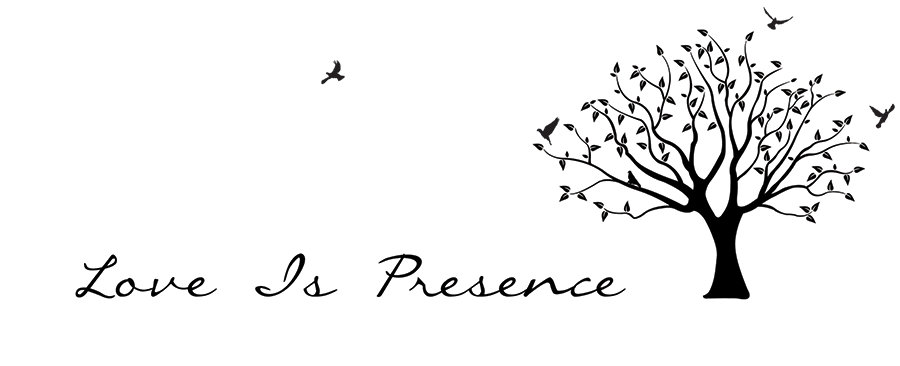Our Practice
Presence is our natural state. We are born into it, and we never lose our capacity to inhabit it, though many of us do lose touch with it. As a result, we suffer, often from a chronic sense that something is wrong with us or missing from our lives. We feel anxious, unsatisfied, disconnected. So we work on ourselves in various ways, hoping for improvement. We distract and soothe ourselves, often from morning until night, with consumption, business, relationships, achievement. Yet still we suffer.
The Zen teacher Charlotte Joko Beck writes, “Enlightenment is not something you achieve. It is the absence of something.” Indeed, we realize enlightenment (or presence) not by trying to change anything about ourselves, but simply by remembering who we’ve been all along. Michelangelo, describing how he was able to carve angels out of blocks of stone, said that the sculpture was already in the marble; he simply removed everything that wasn’t angel, and in doing so, set the angel free. This is exactly what we do as we sit in Vipassana and practice mindfulness in our daily lives: We unearth our true selves, our "Buddha nature," from beneath a lifetime of conditioning. This conditioning, which can be distilled into our dual habits of identifying with our busy, wandering minds and of turning away from the life in our bodies (especially from uncomfortable emotion), obscures presence when it is unconscious and we mindlessly react to it.
In our meditation and mindfulness training, we thus observe our minds and bodies to become aware (Vipassana means “insight”) of our conditioning to cling to thoughts and dissociate from physical experience. We learn to gently redirect our attention back to our breath (or to any one of our senses) whenever we realize we’re lost in discursive thought or reactivity, and we come to see that awareness of the body is our gateway home. We cultivate the ability to bring compassion (rather than judgment) as well as insight to our long-neglected inner states, and by so doing discover the ability to stay balanced and awake, even in the midst of chattering thoughts, uncomfortable feelings, and the slings and arrows of everyday life. A deeply liberating insight of our practice is that we do not need to extinguish our conditioning in order to be free of it—we need only to recognize it and hold it with compassion. As we become able to experience our thoughts without getting caught in them, our emotions without fleeing them, and our impulses without needing to act on them, we feel a joy, vitality, and sense of connection we may have forgotten even existed. We begin to experience our lives, as John Keats so beautifully put it, on our pulses. And as we uncover true presence in our own lives, we become free to manifest our potential and to truly love others.
Our Teacher, Abra Chernik
I have been studying Insight (Vipassana) meditation since 1992, when I took my first class while living in Seattle. At the time, I was in early recovery from an eating disorder and feeling profoundly disconnected from my body, my emotions, my life – from everything, really, except my own incessant (and mostly self-aversive) thoughts. Meditation felt like a homecoming (and what a relief to know that I was not the only person who struggled with a wild mind!). The Buddhist teachings on both the universality of suffering and on each person’s potential to awaken from suffering – along with clear instructions on how to do so -- would ultimately become not only the most important element in my recovery, but also an integral part of my life’s path. I went on to study and practice with dharma (and yoga) teachers around the country, including in my hometown of New York City. I taught my first class in 2002.
My teaching and approach to sharing the dharma draws not only from Buddhist philosophy, but also from a range of wisdom traditions, Western psychology, inspired world literature, and the artistic process. I see meditation as an art, and a life of awakening as a deeply creative act. Presence is a moment-by-moment choice we make throughout the day; our freedom depends not on what happens to us, but on how we respond to it. As Robert Pack, my beloved Middlebury literature professor, put it, “Grace is the ability to respond to necessity as though it were choice.” I emphasize taking our practice off of the mat and into our everyday activities, where it can help us cultivate a life of true presence and engagement.
I studied literature as an undergraduate at Middlebury College and Oxford University, and I hold an M.A. in Creative Writing from Oregon State and a Master of Letters (M.Litt) from Middlebury College’s Bread Loaf School of English. In addition to being a teacher, I am a writer.
I am also a great lover of animals. My life has been enriched beyond measure though sharing it with not only my own dogs and cats, but also with the many animals, large and small, I encounter each day. Their unwavering presence and capacity for joy are among my greatest teachings and calls to practice. ~ Abra
